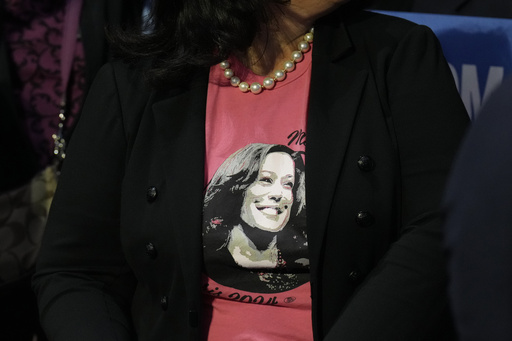
In the lead-up to the Nov. 5 election, there is a noticeable focus on masculinity, particularly among American men, as Donald Trump and his supporters attempt to shape the narrative around their voting choices. The Republican nominee is increasingly emphasizing a hypermasculine tone and traditional gender roles in his appeal, especially as he faces off against Democratic Vice President Kamala Harris. While Harris connects with male voters through a more laid-back, relatable tone, targeting young Black and Hispanic men, Trump’s strategy leans heavily into crass and aggressive language that defines manhood as a choice to support him. This includes appearances on popular podcasts and gaming channels where he promotes a traditional image of masculinity associated with his candidacy.
Charlie Kirk, founder of Turning Point USA, bluntly stated, “If you are a man in this country and you don’t vote for Donald Trump, you’re not a man.” This messaging is not subtle, as both campaigns recognize the crucial role that undecided voters play in battleground states. In this ongoing ideological battle, both candidates are attempting to attract voters from outside their usual bases, focusing on individuals who might be swayed. Barack Obama recently challenged Black men in Pennsylvania, emphasizing that a choice to support someone who undermines their worth is not a true representation of strength.
Historical voting patterns highlight a trend where Trump has historically captured the male vote, particularly in the 2016 election against Hillary Clinton and again in 2020 against Joe Biden. Current polling suggests a similar lean towards Trump among men, while women tend to favor Harris, although the margins differ depending on the survey data. In the context of presidential history, the U.S. has seen a series of male leaders portrayed as archetypes of masculinity—military heroes, lawmakers, and role models, extending all the way to figures like Trump, who has undergone significant scrutiny during his presidency and beyond.
In engaging suburban women—who may feel hesitant to support him—Trump adopts a paternalistic attitude. He positions himself as a protector, particularly in discussions surrounding issues like illegal immigration, arguing that women want safety and security. In his recent remarks, he dismissed traditional advice from his advisors on how to appeal to women. Instead, he opts for a more aggressive tone, mocking others’ masculinity and using derogatory language towards individuals who oppose him. His use of language appears to reinforce his campaign’s narrative, aiming to present him as a stalwart of masculinity.
Trump’s campaign strategies find roots in historical contexts, especially from the late 1960s and early 1970s when framing opponents as weak or feminist garnered support among predominantly white working-class men. Jackson Katz, an expert on gender dynamics, notes that the Trump campaign has essentially crafted a storyline casting him as a heroic symbol of masculinity. At the same time, recent trends indicate that while women are leaning more liberal, young men are not demonstrating the same shift. Furthermore, the excitement surrounding Harris’ support shows division among Hispanic men, as well as apprehensions from Democrats about her appeal to Black men.
As the election approaches, both campaigns are looking for ways to engage with these crucial voter segments. Trump appears to benefit from portraying rigid masculine ideals, while Harris has unveiled plans geared toward supporting Black men economically, showcasing events like town halls with media influencers to connect on a personal level. She has also expressed readiness to engage with conservative media outlets, including Fox News, which Trump has critiqued for not being tough enough on Democrats.
Harris’ campaign has mobilized grassroots efforts, including initiatives like “Dudes for Harris” and “Hombres con Harris” to rally male support. Meanwhile, anti-Trump advocates are encouraging men to look past traditional gender biases, emphasizing that voting against Trump is not a sign of weakness. The ongoing battle to define masculinity and male identity within the context of this election highlights significant dynamics at play, as both candidates strive to capture the attention and votes of a diverse and fragmented electorate.
